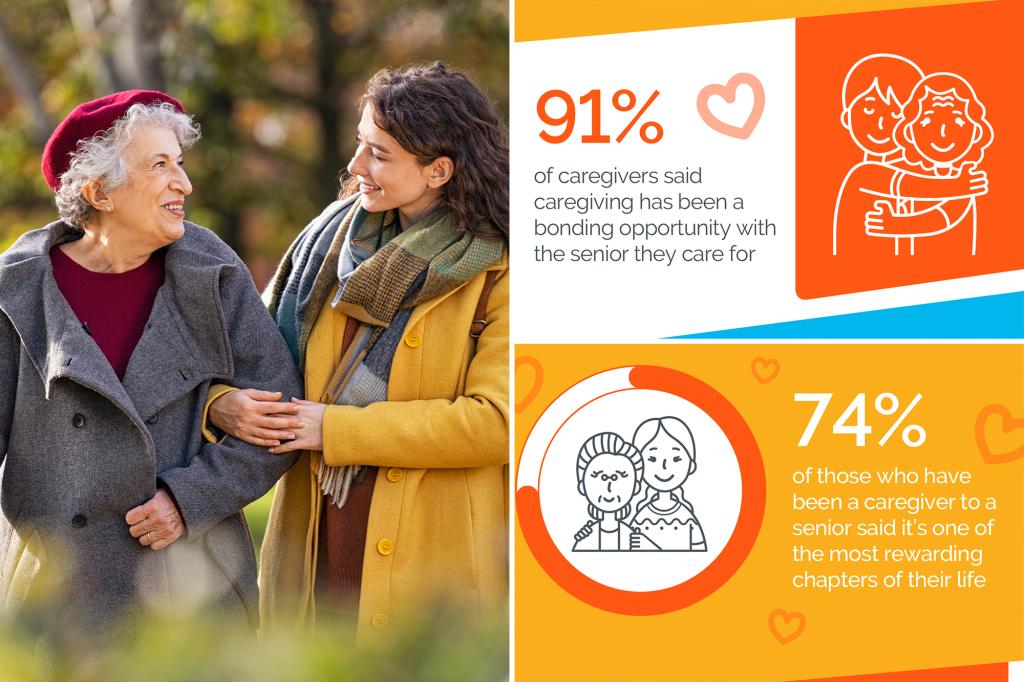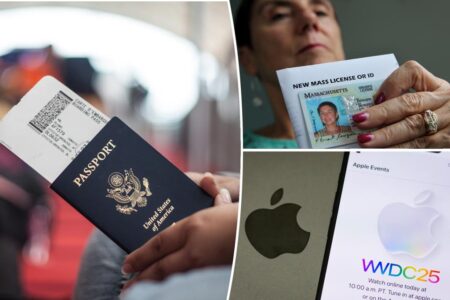Half of Americans don’t consider themselves a “caregiver,” but new research revealed that some have already assumed the role.
That’s according to a survey of 2,000 Americans, including 1,000 who are caring for (or have cared for) a senior.
For those who have not “officially” cared for a senior, 53% didn’t consider themselves a caregiver — despite taking on many caregiving responsibilities.
These respondents still do errands for a senior in their life (21%) and provide emotional and mental support (18%) for this older person.
Others also make a point to visit with them on a regular basis (16%), clean their home (16%) and provide transportation (14%).
Conducted by Talker Research on behalf of Comfort Keepers for the National Day of Joy, the survey revealed all these activities fit into respondents’ definition of “caregiving.”
When asked what caregiving means, 58% of respondents said, simply, being available at all times for the person being taken care of.
Less important as a definition were — giving care as an occupation (47%), living in the home with the senior (33%) or actually being paid (25%) for the work.
And with this broad definition for caregiving, 74% of respondents believe everyone will, at some point, become a caregiver for a senior who is unable to meet their own needs.
“Millions of Americans are caregivers in all but name, quietly supporting aging loved ones without recognizing the essential role they’re already playing,” said Saudia Gajadhar, chief happiness officer at Comfort Keepers. “Our research shows that many people don’t identify as caregivers, even as they provide meaningful support, with many expecting to step into that role in the future. At Comfort Keepers, we aim to shine a light on the joy and purpose that caregiving brings to both those who give care and those who receive it.”
While caregiving comes with challenges, it’s also something for people to look forward to: three-quarters (74%) of those who have been a caregiver said it’s one of the most rewarding chapters of their life.
Ninety-one percent of caregivers said it was an opportunity to bond with the senior they were spending time with, with one sharing: “It’s like having another relative. You care for this person for so long and they adopt you.”
Through caregiving, respondents learned, “there is a friend in anyone, all you need is time to know them.” And, “that it is possible to be resilient even when the cards are stacked against you.”
Caregivers also learned some surprising facts about the people they were caring for.
Respondents said the person they care for had experienced more adversity than they thought (33%) and is funnier than the caregiver previously thought (33%).
Caregivers also learned about passions and values the person they were caring for had (30%), and realized the person they were caring for lived a more wild, adventurous life than the caregiver ever knew (26%).
They shared discoveries that the senior they took care of dated a celebrity, one spoke seven languages and another was a champion ballroom dancer.
One respondent learned the person they were caring for was friends with Martin Luther King, while another said the person they cared for was in WWII as a fighter pilot and got shot down — and a third shared “they had a secret double life.”
“Some feel that caregiving can be a burden, but most caregivers call it a blessing and an opportunity to uncover life’s silver linings such as connecting with their loved one, learning family stories, finding purpose and feeling joy,” said Sherri Snelling, gerontologist, author and spokesperson for Comfort Keepers. “Our survey shows that when people care for aging loved ones, they are giving support but they are also getting something back – deep emotional rewards, personal growth, and stronger bonds with older loved ones.”
Survey methodology:
Talker Research surveyed 1,000 general population Americans and 1,000 respondents who are caregivers to a senior/have been a caregiver to a senior in the past (either paid or unpaid and not including general parenting responsibilities as caregiving). The survey was commissioned by Comfort Keepers and administered and conducted online by Talker Research between April 25–May 1, 2025.
Read the full article here

















